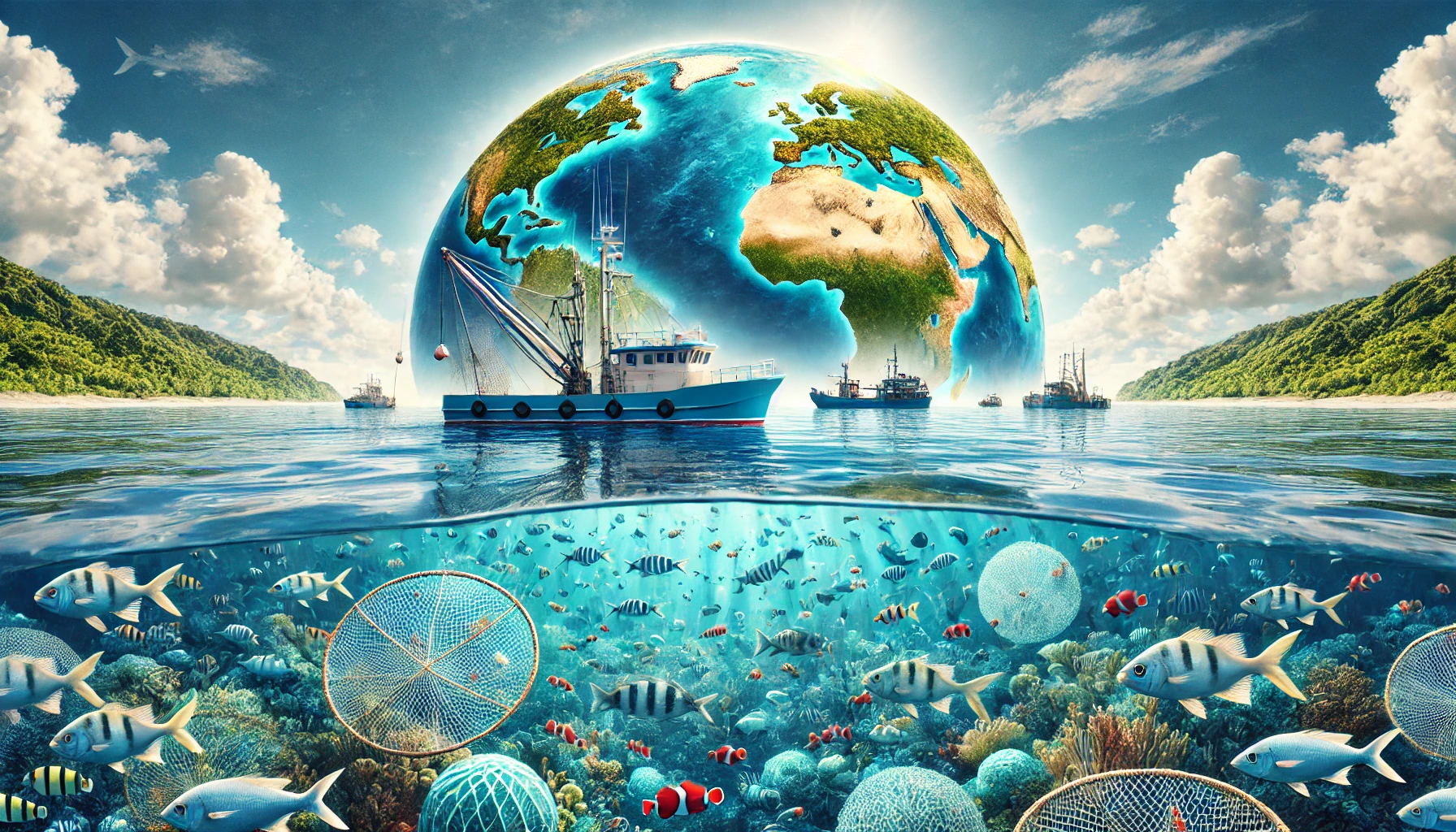South Africa Signs High Seas Treaty to Protect Marine Biodiversity Globally
“The BBNJ Agreement is a testament to multilateralism in action, and we call on all Member States and regional organisations to sign and ratify it without delay.”

- Country:
- South Africa
South Africa has taken a decisive step in global marine conservation by signing the Biodiversity Beyond National Jurisdiction (BBNJ) Agreement, a groundbreaking treaty under the United Nations Convention on the Law of the Sea (UNCLOS). The agreement, often referred to as the “High Seas Treaty,” was signed during a high-level ceremony at the third United Nations Ocean Conference (UNOC3) held in Nice, France, and co-hosted by France and Costa Rica.
This move marks a major advancement in international efforts to conserve and sustainably use marine biodiversity in areas of the ocean that fall outside national jurisdictions — areas that comprise nearly two-thirds of the global ocean.
“As part of our longstanding commitment to strengthening the rule of law in ocean affairs, South Africa played an active role in negotiating the BBNJ Agreement,” said Dr Dion George, Minister of Forestry, Fisheries and the Environment.
What Is the BBNJ Agreement?
The BBNJ Agreement is the first comprehensive international treaty that provides a legal framework for the conservation and sustainable use of marine biodiversity in the high seas and deep-sea floor — regions previously governed by a patchwork of international laws and agreements.
Key components of the treaty include:
-
Area-Based Management Tools (such as Marine Protected Areas)
-
Environmental Impact Assessments (EIAs) for activities in the high seas
-
Access and Benefit Sharing of Marine Genetic Resources
-
Capacity Building and Technology Transfer to support developing nations
These mechanisms aim to close major governance gaps and establish legally binding processes to safeguard marine ecosystems from threats like overfishing, deep-sea mining, plastic pollution, and climate change.
South Africa’s Role and Commitment Dr Dion George highlighted South Africa’s proactive role in the treaty’s negotiation and reaffirmed the country’s commitment to strengthening ocean governance, protecting biodiversity, and ensuring that economic development does not come at the expense of environmental sustainability.
“The BBNJ Agreement is a testament to multilateralism in action, and we call on all Member States and regional organisations to sign and ratify it without delay.”
South Africa views the treaty as complementary to its existing marine conservation laws, and aligned with Sustainable Development Goal 14 (Life Below Water), which calls for the conservation and sustainable use of the oceans, seas, and marine resources.
Call for Global Solidarity and Support
Dr George also urged the global community to ensure that the agreement is fully inclusive and equitably implemented, especially by enhancing support for developing nations. He called for:
-
Scaled-up technical and financial support for capacity development
-
Scientific collaboration and data-sharing
-
Inclusive implementation that considers the voices and needs of the Global South
“Only through strengthened cooperation, knowledge exchange, and equitable access to marine technologies can we realize the full potential of the BBNJ Agreement,” the Minister said.
UNOC3: Accelerating Ocean Action on the Global Stage
The signing took place on the sidelines of UNOC3, a major international summit aimed at accelerating progress on ocean conservation and sustainable use. This year’s conference has gathered world leaders, scientists, civil society actors, and private sector representatives to confront urgent marine challenges and forge pathways toward more resilient and sustainable ocean governance.
Major themes at the conference include:
-
Combatting ocean acidification and pollution
-
Expanding marine protected areas
-
Advancing blue economy models for sustainable coastal development
-
Supporting small island developing states and coastal communities
Towards a Legally Binding Future
While the BBNJ Agreement has been signed by several countries, its entry into force will require ratification by at least 60 Member States. Once ratified, the treaty will provide a robust legal basis for managing human activities in international waters.
South Africa’s endorsement of the treaty underscores its belief that ocean conservation must be based on inclusive governance, scientific integrity, and fair access to marine resources.
A Global Pact for the Ocean's Future
As the ocean faces unprecedented stress from climate change, pollution, and exploitation, South Africa’s signing of the BBNJ Agreement represents a firm step toward a sustainable and just global ocean regime. The country joins the growing chorus of nations calling for legally binding protections for the high seas, and for a future where economic progress goes hand in hand with ecological integrity.
“The ocean is our shared heritage. This agreement gives us the tools to protect it — not just for today, but for generations to come,” Dr George concluded.










